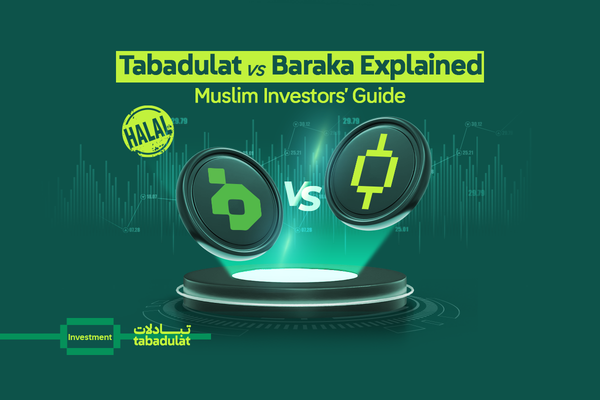Is Amazon a Halal Stock?
Amazon continues strong growth in e-commerce and cloud, but does it meet halal investing standards? This analysis reviews Amazon’s Shariah compliance under AAOIFI, its revenue streams, and what it means for Muslim investors seeking an ethical, riba-free portfolio.

Amazon is capturing significant investor attention with strong market performance and analyst projections for its share price to rise to around $264 by 2025. This is driven by the company's dual dominance in e-commerce and cloud computing (AWS), with its vast operations and services being heavily powered by artificial intelligence. But for those committed to halal investing and religious compliance, numbers alone aren’t enough. Do you need answers? Is Amazon a truly halal stock? Do its shifting revenue streams and debt levels fit within the rigorous standards of Shariah compliance?
In a world where ethical investing intersects with rapid business evolution, Shariah-compliant investing demands vigilance, not just optimism. This article examines Amazon’s business profile, Shariah screening results, and the ongoing risks and responsibilities for Muslim investors considering AMZN for their Islamic portfolio, including questions such as 'is trading halal' and 'are dividends halal.'
Is Amazon’s Business Model Halal?
Amazon’s core remains its global e-commerce marketplace, but its business model has evolved far beyond online retail. Today, Amazon Web Services (AWS) delivers a significant portion of the company’s profits, fueling cloud computing for governments, enterprises, and start-ups worldwide. The company also invests in advertising, logistics, digital content, and AI-enabled consumer products.
This business diversification brings new opportunities and challenges for Shariah-compliant investing. Amazon’s ventures into digital media, subscription services, and financial products require ongoing Halal screening to assess their adherence to Islamic finance principles. As the company’s profit-sharing model and debt profile shift, so do its Shariah compliance indicators. For investors seeking exposure to technology leaders, Halal ETFs and Islamic mutual funds may provide a balanced approach, ensuring religious compliance while accessing growth sectors.
Amazon’s Growth Blueprint
Amazon remains a powerful long-term investment thanks to its dominance in both e-commerce and AI. In the U.S., Amazon commands a massive 37.6% market share in online shopping, far ahead of Walmart at 6.4% and Apple at 3.6%. Its global customer base includes more than 250 million Prime members, and the company achieved $167.7 billion in Q2 2025 revenue, up 13% year over year. In that same quarter, North America brought in $100.1 billion, while international e-commerce revenue reached $36.8 billion, a 16% increase. At the same time, Amazon's website attracted 2.56 billion visits annually, showing its global reach.
The real growth engine continues to be AWS, which generated $30.9 billion in Q2 2025, growing 17.5% year over year and holding a 29.1% share of the global cloud market. Amazon is aggressively expanding its AI tools like Rufus, Amazon Q, and HealthScribe, while AI already drives 35% of sales through personalized recommendations. Sustainability is becoming a pillar of its strategy as well: the company has rolled out 31,400 electric delivery vehicles, reduced single-use plastics by 16.4%, and invested $1.2 billion in renewable energy projects.
Amazon Shariah Compliance: Halal Screening
For Muslim investors, the first step is always Shariah screening. This process ensures that a stock is free from interest-based (riba) income, excessive debt, and non-halal business activities. Shariah compliance is not static: as Amazon’s revenue sources and financial structures evolve, so must the investor’s assessment. The question of 'is the stock market halal' or 'are stocks haram' is nuanced and requires ongoing review.
From a Shariah-compliance perspective, Amazon’s stock is generally not considered halal, as it does not meet the criteria set by AAOIFI (Accounting and Auditing Organization for Islamic Financial Institutions). While Amazon is a major technology and e-commerce company, its non-permissible income exceeds the allowable percentage outlined in AAOIFI's screening standards, which raises concerns about its religious compliance for Muslim investors. Although the company is not directly involved in clearly haram sectors like alcohol or gambling, the stock is still classified as non-Shariah compliant, and many scholars advise avoiding it.
Tools like Tabadulat’s halal stock screener enable investors to track these changes, ensuring that their Islamic portfolio remains both ethical and riba-free. For those seeking broader diversification, halal ETFs and Islamic mutual funds may offer exposure to tech giants like Amazon while maintaining rigorous Shariah-compliant investing standards. A halal stocks list can be a useful starting point, but ongoing due diligence is essential.
Market Context: Analyst Optimism vs. Shariah-Conscious Scrutiny
The tech sector’s robust performance has made Amazon a favorite among fund managers and individual investors alike. In 2025, Wall Street consensus expects continued share price appreciation, with upside scenarios projecting $300 per share. Morningstar rates Amazon as undervalued, citing strong cash flow and operating leverage.
Yet, for those pursuing ethical investing through an Islamic lens, market optimism is only one part of the equation. The rise of Islamic banking and Shariah-compliant financial products has made it easier for Muslims to engage with global markets, provided that due diligence is ongoing. Shariah screening is not a one-time event but a continuous process, especially as companies like Amazon expand into new business lines, acquisitions, and financial partnerships.
For those who are thinking of holding Amazon in a halal ETF or Islamic mutual fund, regular reviews are essential. Use a reliable halal stock screener to monitor real-time compliance. Engage with fund managers to ensure your investment remains Riba-free and aligned with Islamic finance principles. Remember, religious compliance is a personal responsibility that requires both knowledge and vigilance. The Shariah board of each fund or index plays a crucial role in interpreting compliance, but investors should also understand the basics of Shariah-compliant investing.
Can a Muslim Investor Buy Amazon Stock?
In today’s financial landscape, true Shariah compliance goes far beyond profitability or market forecasts. Ethical investing within the framework of Islamic banking, especially through interest-free instruments, requires investors to actively apply Shariah screening before labeling a company as a halal stock. While tools like Halal stock screeners, Halal ETFs, and Islamic mutual funds can support religious compliance, the case of Amazon proves that not every high-performing company qualifies under halal stock criteria.
The growing availability of Shariah-compliant investment products empowers Muslims to pursue wealth in a way that aligns with their faith through ethical investing, riba-free principles, and transparent religious compliance. Ultimately, achieving a faith-based portfolio isn't about chasing trends, but about maintaining discipline, responsibility, and Islamic values in every investment decision.
To build a robust Islamic portfolio, start by consulting a Halal stocks list and using a Halal stock screener to evaluate potential investments. Diversify with halal ETFs, Islamic mutual funds, and consider including the halal S&P 500 or other Shariah-compliant indices. Always review the Shariah board’s guidelines and ensure ongoing Shariah screening. Remember, ethical investing is not just about returns, but about upholding the values of Islamic finance, such as profit sharing, interest-free transactions, and riba-free investments.
Frequently Asked Questions
Is Amazon Stock Halal?
Currently Amazon stock is not halal, as it fails Shariah compliance based on AAOIFI standards. While its core business in e-commerce and cloud computing is not haram, non-permissible income and debt levels exceed Halal thresholds.
Are Amazon dividends Halal?
Amazon dividends are not halal because they originate from a company that does not meet Shariah screening criteria. Despite strong profits and growth, its non-permissible income streams violate Halal investment principles. Investors seeking riba-free, Shariah-compliant income can turn to Halal ETFs, Islamic mutual funds, or certified Halal stocks.
Can Amazon Prime be shared?
Yes, you can share Amazon Prime by setting up an Amazon Household with one other adult, which allows you to share eligible Prime benefits, digital content, and payment methods.
Are dividends Halal?
It depends on the source of the company’s profits and its compliance with Shariah principles. If a company’s main business is halal and its non-compliant income is minimal, dividends may be considered halal, but purification may be required.
Is trading stocks Halal?
Trading stocks can be Halal if done within Shariah guidelines. The permissibility depends on avoiding speculation (gharar), margin trading with interest (riba), and ensuring the underlying business is Halal. Using a Halal stock screener and investing through Halal ETFs or Islamic mutual funds helps Muslim investors stay compliant.
Can non-U.S. citizens buy US stocks?
Yes, non-U.S. citizens can buy U.S. stocks, including Halal stocks, through global brokers offering market access. Platforms like Tabadulat enable Middle East investors to trade U.S. equities with Shariah screening. Non-residents can also diversify using Halal ETFs, Islamic mutual funds, or Shariah-compliant indices aligned with ethical investing standards.




